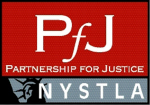 The ultimate goal of mediation is, of course, that the parties reach a settlement, which entails compromise on both sides of the case. With the help of a mediator, the plaintiff and defendant find a middle ground between the bid and the ask, and both parties walk away, feeling that they have benefited by avoiding the expense, uncertainty and stress of going to trial.
The ultimate goal of mediation is, of course, that the parties reach a settlement, which entails compromise on both sides of the case. With the help of a mediator, the plaintiff and defendant find a middle ground between the bid and the ask, and both parties walk away, feeling that they have benefited by avoiding the expense, uncertainty and stress of going to trial.
But while mediation usually enjoys a high success rate, even the best mediators don’t always produce a settlement. In a way, this can be disheartening and may feel like failure, particularly if you’ve invested significant time and money in preparing, paid fees to the mediator and maybe to produce your expert witnesses too, and still end up in the same place. It may feel like you have nothing to show for your efforts except now you’re a day closer to your trial date.
In fact, in our experience there really is no such thing as a completely unsuccessful mediation. Even when you don’t emerge from the session with a settlement in hand there are invariably significant benefits from participating in the process; it will typically better position you to obtain a successful outcome to the case, much more effectively than rushing headlong into trial.
Here are couple other tangible benefits we see emerge from mediation even when settlement itself remains elusive:
- A good mediator starts off by encouraging both sides to put their cards on the table. The plaintiff and defense each presents their case. If nothing else, this means that you can get a sense of the defense lawyer’s strategy and theory of the case.
- If all parties are present at the mediation, you’ll get some face-to-face time with the insurance adjusters. There is definitely something valuable about sitting across the table from the real party in interest, learning about the styles and personalities involved that stand between you and recovery for your client.
- We all have experience dealing with clients who have developed unrealistic expectations about their prospects for their case. This can make your job is twice as hard because you end up having to negotiate with both the adjuster and your client. In that case, bringing your client to the mediation can provide a welcome reality check. A good mediator can help catalyze the process of bringing your client down to Earth by opening their eyes to the realities of what defense is actually willing to offer.
- It’s also possible, particularly if you’ve been working on a case for a long time, that you might be seeing it through rose-colored glasses. We’ve seen a lot of lawyers fall in love with their cases, blinding them to potential flaws and weaknesses. The mediator is seeing it for the first time, through a fresh set of eyes, and may be able to help you better assess your chances at trial. A good mediator will provide you with feedback on your presentation and a more objective view of the strength of your case.
- Even when mediation doesn’t produce settlement, any settlement offer is better than nothing and you should at least succeed in narrowing the gap between bid and ask. Typically (though not always) a settlement offer that gets made by the defense will remain on the table right up until the start of the trial. So, if nothing else, the mediation should establish a floor for your client’s recovery and leave open the opportunity for further progress as the trial date approaches. In our experience, the most successful mediations occur within a few months of the trial date, when all parties are keenly aware of the work that still needs to be done and risks entailed.
- In many personal injury cases, the defendant will have multiple layers of insurance coverage, known as primary and excess. Mediation will sometimes establish the willingness of the primary coverage carrier to settle on acceptable terms, leaving you with a reduced cast of characters to negotiate with in order to resolve the case. Narrowing the field of your opposition often proves to be an important first step.
So when you go into mediation, you want to give it your best shot to reach settlement. But you also want to bear in mind that mediation is very different from trial itself. It’s not winner take all and both sides should emerge from it better positioned and closer to settlement than you were before heading into it.

